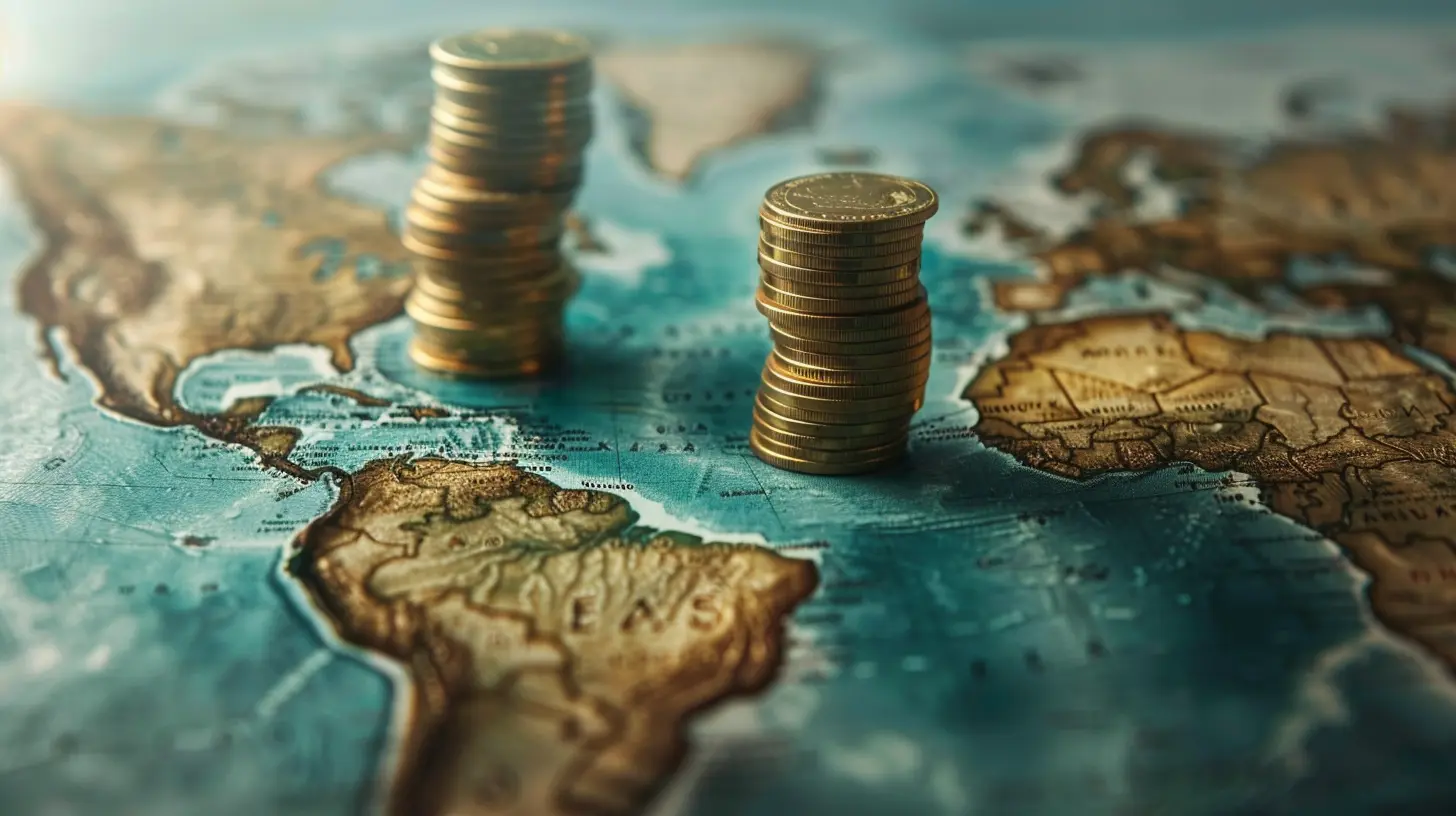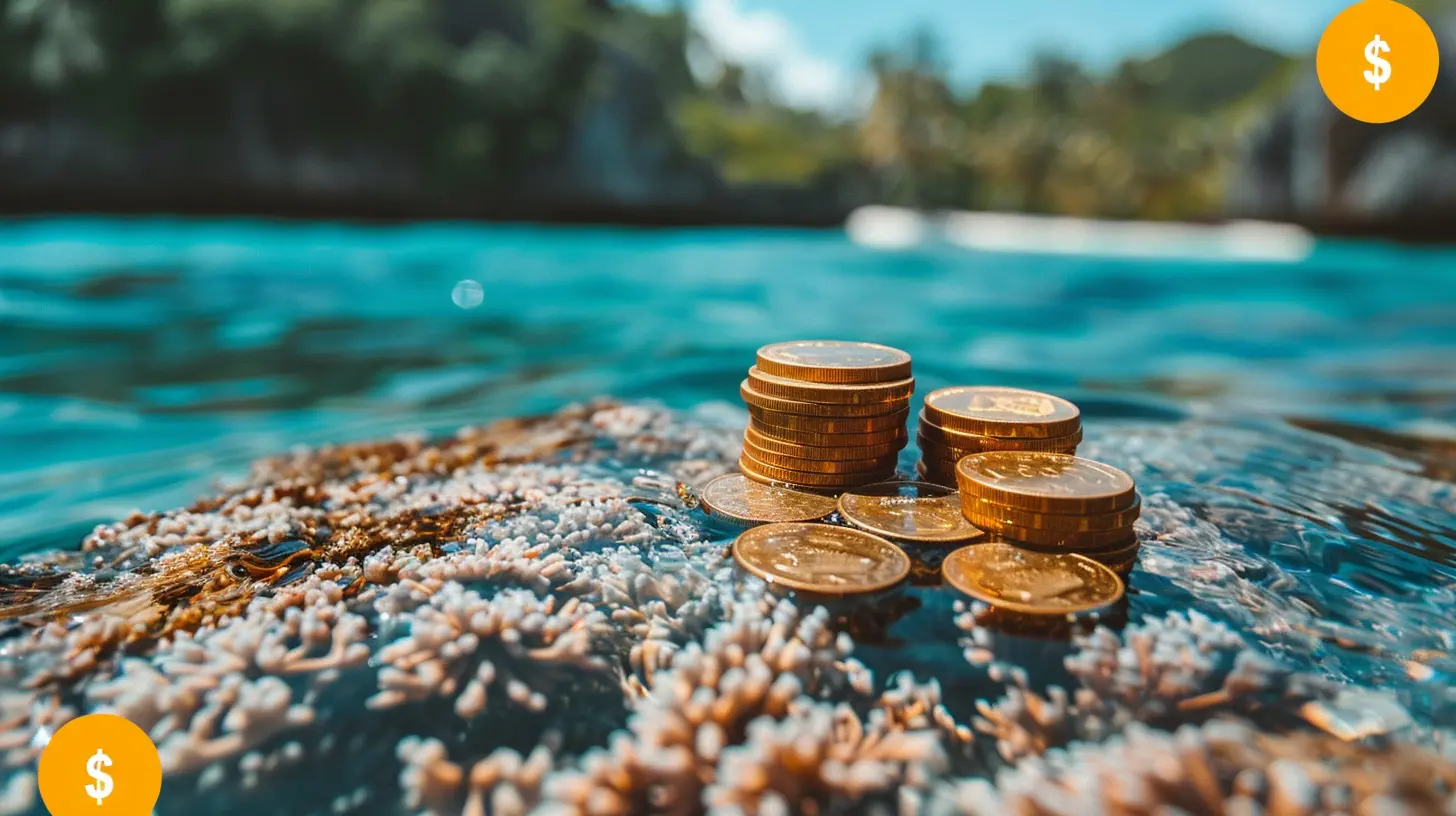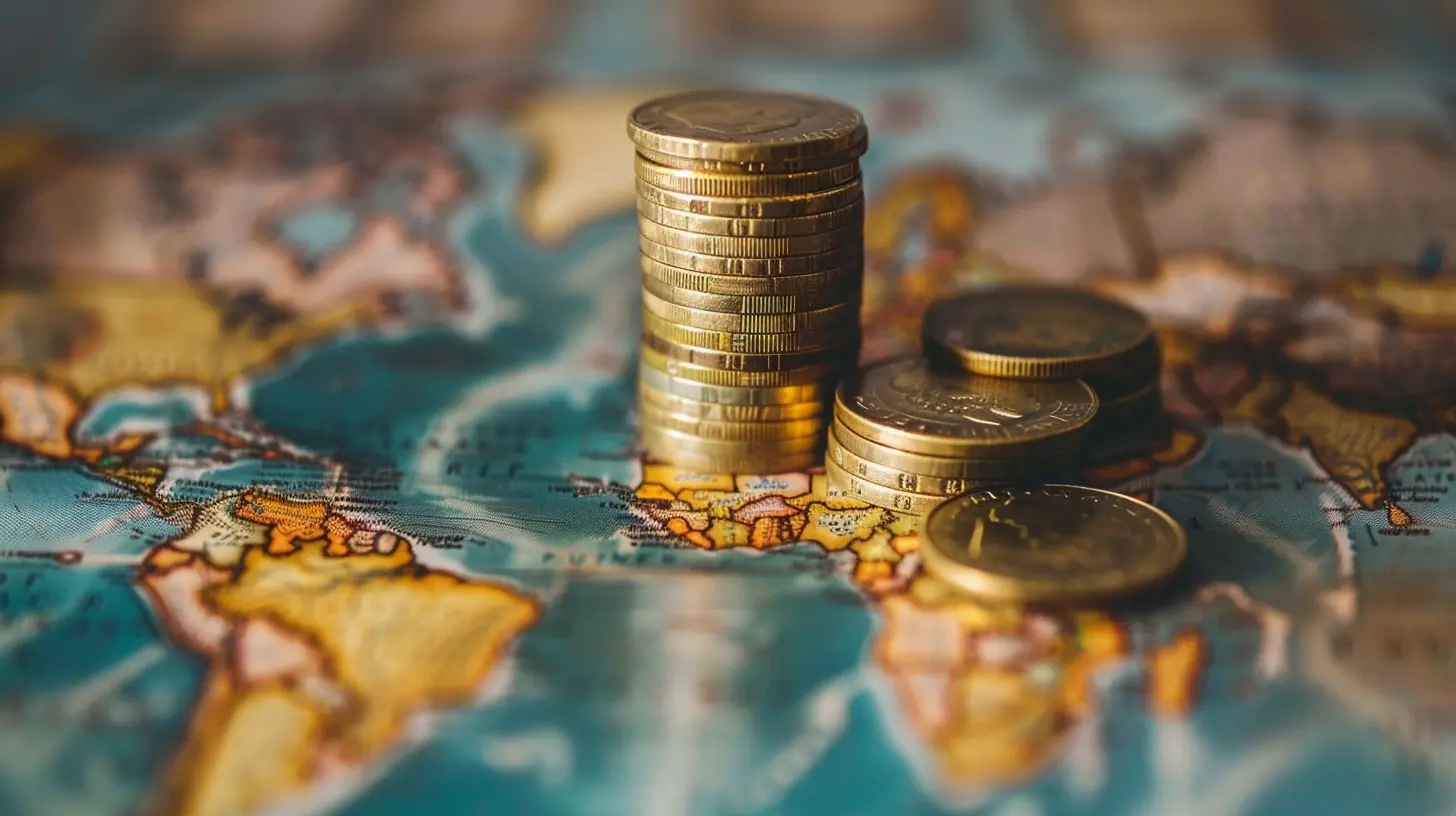Asset Diversification with Offshore Accounts: A Comprehensive Guide
19 October 2025
Let’s get real for a second — if you’ve got your entire financial life sitting in a single country, you’re doing it wrong.
Gone are the days when stashing your wealth in one place gave you peace of mind. Today, with political instability, economic uncertainty, and the never-ending tax grabs from governments, smart investors are taking things offshore. And no, we're not talking about shady shell companies or breaking laws — we're talking about strategic, legal, and effective asset diversification with offshore accounts.
So buckle up — this guide is going to unpack everything you need to know about going global with your money. It’s bold, unapologetic, and pulls no punches. Let’s go.
What is Asset Diversification Anyway?
Think about your portfolio like a breakfast plate.If all you’ve got is toast (i.e., domestic assets), what happens when the toaster breaks (your economy tanks)? You're stuck. But if you've got eggs, bacon, fruit, and maybe even some pancakes? That’s diversification, baby. You're not relying on just one thing.
Asset diversification means spreading your investments across different asset types, industries, and — yep — countries. Offshore accounts are just another layer of that delicious pancake stack, giving your money more flavor and flexibility.
Why You Should Be Considering Offshore Accounts
Let’s squash the myth that offshore accounts are just tools for billionaires and James Bond villains. That’s old-school thinking. Today, offshore accounts are a strategic move for anyone serious about protecting and growing their wealth.Here’s what they offer:
- Risk Minimization: Don’t put all your eggs in one geopolitical basket.
- Currency Diversification: Hedge against the risk of your local currency losing value.
- Access to Global Opportunities: Better interest rates, real estate options, and international funds.
- Privacy and Asset Protection: Not about hiding, but about shielding — from lawsuits, political unrest, or economic meltdowns.
- Tax Optimization: Not evasion — optimization. Big difference. Done right, it can be 100% legal and highly effective.
Offshore Doesn’t Mean Illegal — Let’s Get That Straight
Let’s cut the crap — "offshore" doesn’t mean illegal. It's all about how you use it. Open an offshore account legally? You’re good. Use it to dodge taxes or launder money? You’re toast.The IRS, HMRC, CRA — they all allow offshore holdings. That said, you MUST report them. Ignoring that will land you in hot water faster than you can say “FATCA.”
When done by the book, offshore diversification is not only legal but smart. Anyone who tells you otherwise just doesn’t get it.
Types of Offshore Accounts for Diversification
Not all offshore accounts are created equal. Depending on your goals, you might need one, two, or a cocktail of the following:1. Offshore Bank Accounts
The classic. These are held in foreign banks that often offer more confidentiality, access to different currencies, and sometimes, better banking terms.Perfect for:
- Holding cash in multiple currencies
- Hedge against your domestic currency
- Easier access to international investment platforms
2. Offshore Brokerage Accounts
Want to invest in global stocks, bonds, crypto, or real estate? An offshore brokerage account can be your golden ticket.Perks:
- Access to global stock exchanges
- Better asset diversity
- Potential for tax advantages (depending on where you invest)
3. Offshore Trusts and Foundations
This is next-level asset protection. If you're serious about safeguarding your wealth for generations or protecting your assets from litigation, these structures are powerful.Best for:
- Estate planning
- Wealth preservation
- Shielding assets from legal predators
4. Offshore Real Estate Holdings
You can also diversify by holding property in stable, investor-friendly countries. Think beachfront condos in Panama, apartments in Lisbon, or even farmland in Uruguay.Offers:
- A physical asset abroad
- Residency or citizenship perks in some countries
- Potential for rental income and appreciation
Best Countries for Offshore Accounts
Here's where things start getting spicy. Not all offshore jurisdictions are created equal — some are more secure, discreet, and investor-friendly than others.Here are some top picks:
🇸🇬 Singapore
- Rock-solid political and economic landscape- Ultra-modern banking system
- No capital gains tax
🇨🇭 Switzerland
- The OG of offshore banking- World-class privacy
- Safe and stable — but strict compliance
🇧🇿 Belize
- Low costs and English-speaking- Easy banking setup
- Popular for offshore trusts
🇵🇦 Panama
- Strategic for Latin American diversification- Territorial tax system (you’re only taxed on Panama-sourced income)
- Great for real estate
🇲🇹 Malta or 🇨🇾 Cyprus
- EU-member states- Good mix of privacy and compliance
- Ideal for European investors
Pick a country that fits your risk profile, compliance needs, and desired level of access/control. Don’t go blindly chasing secrecy. Go where your strategy works best.
How to Set Up an Offshore Account (Step-by-Step)
Alright, so you’re sold on the idea. Let’s talk execution.Step 1: Know Your "Why"
Are you aiming to:- Protect assets?
- Reduce risk?
- Diversify currency?
- Plan for retirement abroad?
Your "why" determines the structure you need.
Step 2: Choose Your Jurisdiction
Do your homework — think about:- Political/economic stability
- Banking reputation
- Tax implications
- Reporting requirements
Step 3: Pick the Right Financial Institution
Not all banks or brokers are created equal. Look for:- Strong reputation
- English support
- Easy online access
- Clear compliance processes
Step 4: Gather Your Documents
Typically, you'll need:- Passport or government-issued ID
- Proof of address (utility bill or bank statement)
- Source of funds documentation
Depending on the country, they might ask for more. Be ready with a clean paper trail.
Step 5: Fund Your Account
Wire transfer, cryptocurrency, or even physical deposit — but ensure everything is legit and declared.Step 6: Comply with Local and Home Regulations
Report your foreign accounts to your home government as required (like FBAR for Americans). Play it clean. No funny business.Common Mistakes to Avoid
Let’s not sugarcoat it — offshore diversification can go sideways if you’re careless. Here’s what to dodge:- ❌ Thinking it’s a tax-free free-for-all
- ❌ Ignoring reporting requirements
- ❌ Choosing dodgy banks or jurisdictions
- ❌ Using offshore accounts to hide money (hello, jail time)
- ❌ Overcomplicating things when simplicity works better
The Tax Man is Always Watching — So Play It Smart
A big motivation for offshore accounts is tax optimization. That’s fair game. But there’s a thin line between smart planning and stupid evasion.Here’s the deal:
- Americans? You’re taxed on worldwide income — regardless where it’s earned. Same for a few other countries (like Eritrea, believe it or not).
- Most others? You’re only taxed on what you earn inside your home country.
You can legally reduce tax burdens by using international structures wisely — but speak to a legit cross-border tax advisor. Don’t DIY this part unless you want a very unfortunate letter in the mail.
Final Thoughts: Offshore Isn’t Just for the Rich
You don’t need a yacht or a Swiss villa to go offshore. Offshore accounts are tools — powerful ones — that anyone can wield with the right education.In a world that’s increasingly unpredictable, having all your money tied to one country is not just risky — it’s downright reckless.
Offshore accounts are about control. About freedom. About thinking like the top 1%, even if you’re not there yet.
This isn’t a loophole. This is a strategic advantage. Use it.
FAQs About Offshore Diversification
Is it legal to have an offshore account?
Yep — as long as you declare it and don’t use it for nefarious purposes.How much money do I need to open an offshore account?
Some banks require minimum deposits of $1,000, others want $100,000+. Shop around.Can I open an account online?
In many cases, yes! But you’ll still need to provide documents and go through due diligence.Do I have to move money overseas to diversify?
Not necessarily. You can invest in offshore assets through domestic brokers, but direct offshore control gives you more flexibility.Do I pay taxes on offshore income?
That depends on your home country’s tax rules. Many countries only tax domestic income. The U.S., on the other hand, wants their cut no matter where you are.all images in this post were generated using AI tools
Category:
Offshore AccountsAuthor:

Audrey Bellamy
Discussion
rate this article
1 comments
Vito Cantu
This article provides valuable insights into the benefits of asset diversification using offshore accounts. By exploring various strategies and considerations, it equips readers with essential knowledge to effectively protect and grow their wealth in an increasingly complex financial landscape.
October 22, 2025 at 2:37 AM

Audrey Bellamy
Thank you for your thoughtful comment! I'm glad you found the insights on asset diversification and offshore accounts valuable.


